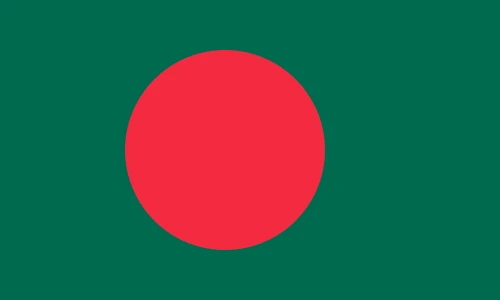Bangladesh Travel Guide
Discover Why You Should Visit Bangladesh
Why Visit Bangladesh?
Bangladesh is a hidden gem in South Asia, known for its natural beauty, warm hospitality, and rich cultural heritage. From the world’s largest mangrove forest to ancient Buddhist ruins, it offers a diverse range of experiences for the curious traveler.
The country’s rivers, green countryside, tea gardens, tribal villages, and bustling cities provide a compelling blend of nature, history, and everyday life. Travelers can enjoy authentic encounters with local culture in a relatively untapped destination.
Ideal for: Cultural adventurers, eco-tourists, heritage seekers, and off-the-beaten-path explorers.
Must-Know Facts
Capital/Major City: Dhaka
Language(s): Bengali (Bangla)
Currency: Bangladeshi Taka (BDT)
Best Time to Visit: November to March (cooler, dry season)
Fun Fact: Bangladesh is home to the world’s largest river delta, formed by the Ganges, Brahmaputra, and Meghna rivers
Top Things to Do
Explore the Sundarbans, home to the Royal Bengal tiger and dense mangrove forests
Visit Cox’s Bazar, the world’s longest natural sea beach
Tour the ancient ruins of Mahasthangarh and Paharpur
Take a boat trip through rural riverine villages and floating markets
Relax in Sylhet’s tea gardens and visit Ratargul Swamp Forest
Local Culture & Lifestyle
Bangladeshi culture is deeply rooted in traditions, poetry, music, and hospitality. Family life, festivals, and folk customs play vital roles in everyday interactions.
The society is primarily Muslim with a rich tapestry of Hindu, Buddhist, and Christian communities living in harmony. Rural lifestyles are predominant, but urban areas are growing rapidly.
Festivals like Pahela Baishakh (Bengali New Year), Eid, and Durga Puja are celebrated with great enthusiasm.
Food & Drink Highlights
Street Food: Fuchka (pani puri), chotpoti, egg rolls, singara, jilapi
Restaurants: Serve rice-based meals with fish, lentils, and curries
Drinks: Seven Rings cola, lemon sharbat, coconut water, sweetened tea
Desserts: Mishti doi (sweet yogurt), roshogolla, chomchom, sandesh
Main Dish & Culinary Symbols
Signature Dish: Ilish maach bhat (hilsa fish with rice)
Common Ingredients: Mustard oil, green chili, turmeric, lentils, eggplant, rice, river fish
Culinary Culture: Meals often revolve around rice and fish, served with vegetables, lentils, and pickles. Food is typically spicy and aromatic
Symbols & Icons of the Area
Natural Icons: Sundarbans mangroves, Padma River, hill tracts of Bandarban and Rangamati
Cultural Icons: Rickshaws with colorful artwork, baul music, Bengali script, terracotta temples
Hidden Gems & Off-the-Beaten-Path
Saint Martin’s Island for coral beaches and clear waters
Puthia Temple City for intricate Hindu temple architecture
Sajek Valley for mountain views and indigenous tribal culture
Bagerhat for UNESCO-listed historic mosques and tombs
Shopping & Souvenirs
What to Buy: Nakshi kantha (embroidered quilts), jamdani sarees, handmade pottery, brass items
Where to Shop: New Market and Aarong in Dhaka, local bazaars in Rajshahi and Sylhet
Getting Around
Public Transport: Rickshaws, CNGs (auto-rickshaws), buses, and river ferries
Trains: Connect major cities, scenic in the hill and tea regions
Domestic Flights: Serve cities like Chittagong, Cox’s Bazar, Sylhet
Ride Apps: Pathao and Uber available in major cities
Travel Tips
Dress conservatively, especially in rural and religious areas
Try learning basic Bengali phrases to engage with locals
Carry cash for small shops and transport, though ATMs are available
Plan ahead for national holidays when transport may be busy
Where to Stay
Budget: Family-run guesthouses and hostels in Dhaka, Sylhet, and Cox’s Bazar
Mid-range: Boutique hotels and river lodges with local flair
Luxury: Five-star hotels in Dhaka and beach resorts in Cox’s Bazar
Unique: Eco-lodges in the Sundarbans, tribal village homestays, and tea estate bungalows
Sample 4-Day Itinerary
Day 1: Arrive in Dhaka, explore Ahsan Manzil, Lalbagh Fort, and Old Dhaka’s rickshaw-filled streets
Day 2: Fly or drive to Sylhet, visit tea gardens and Ratargul swamp forest
Day 3: Travel to Srimangal for Lawachara National Park and tribal village tours
Day 4: Return to Dhaka for shopping and a farewell Bengali dinner



0 Comments